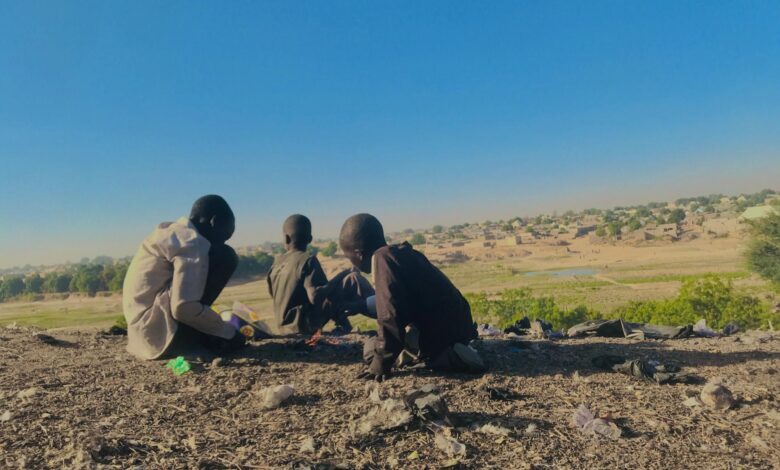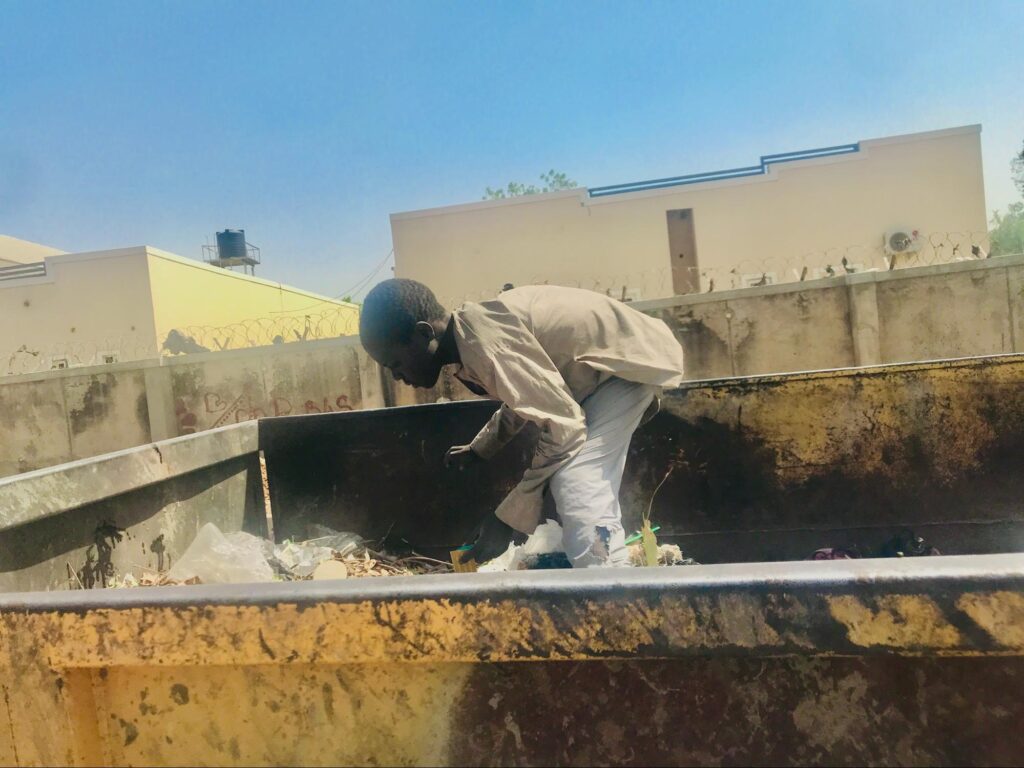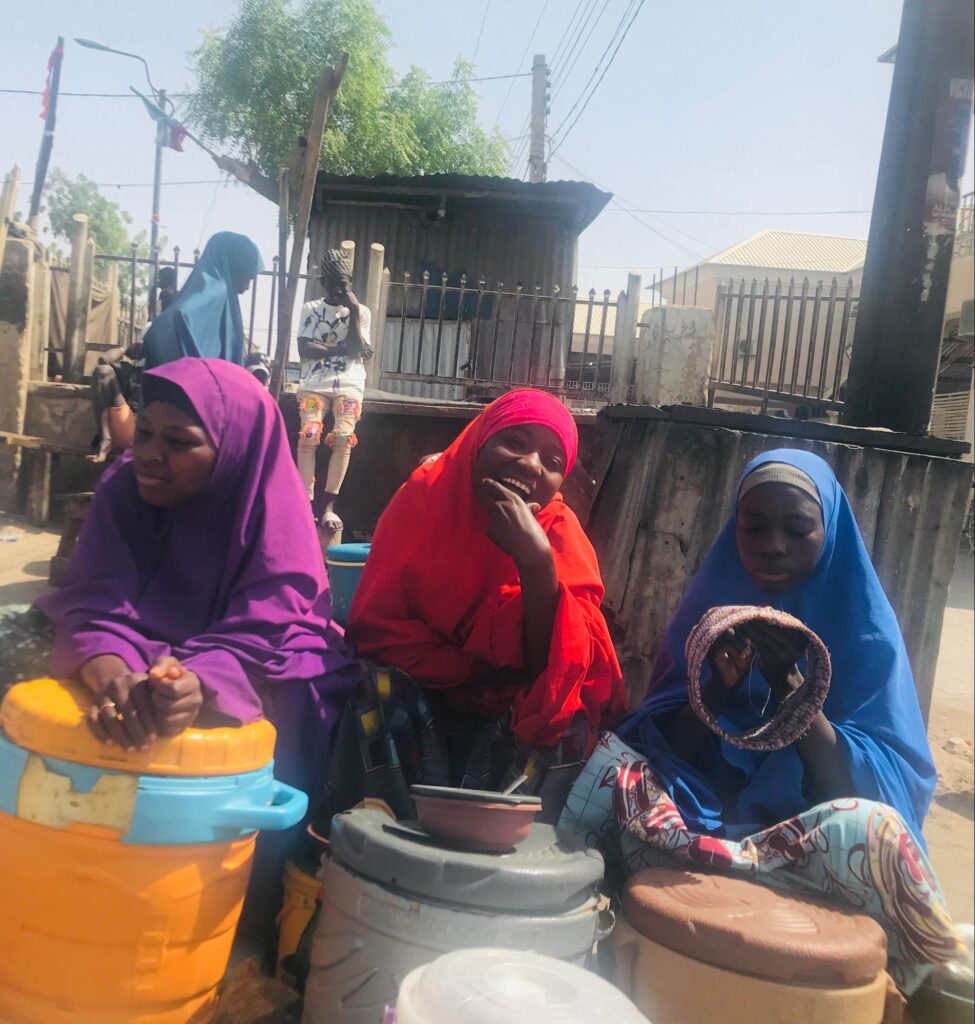The Plights Of Parents Of Nigeria’s Displaced, Out-Of-School Children
Inadequate and dysfunctional school infrastructure, lack of qualified teachers, and poor livelihood are among the major factors hindering the education of children affected by the Boko Haram insurgency.

Bulama Kaya has been displaced from the Kaya community in Konduga, Borno State, since 2015, following a series of attacks by terrorists.
Today, his 13 children are part of over a million internally displaced kids within school age in Nigeria but do not have access to quality education, severely limiting their prospects.
“I wish to take my children to school, but I can’t. The government appears to have ignored education. There are only private schools around. So, I have to choose between feeding my children and taking them to school.
“I feel like crying whenever I see my children scavenging dump sites because I can’t afford to take them to school,” Kaya said.
Kaya is one of many parents lamenting how displacement caused by insurgency makes children lack a qualitative schooling system.
The United Nations Children Fund (UNICEF), in a recent report, notes that the conflict in the Northeast has left 1.3 million without access to primary, quality education.
The report emphasised that “children in Borno State are among the most conflict-affected and educationally disadvantaged in the world.”
In the Dala Lawanti area of Borno, residents also complained about the lack of schools in their community. Fatima Mohammad told HumAngle that none of her nine children has ever been to “the corners of a classroom” as a result of insecurity.

A community head of Goni Sulumri, Bulama Modu Sulumri, says several complaints have been filed to the ministry of education, but there hasn’t been any response.
“You can see that children are on the streets during school hours, and we are left with the burden of seeing our children grow out of childhood on the street with no education.”
Since 2009, over 1,400 schools have been destroyed, and 2,295 teachers have been killed across the Northeast as a result of insurgency.
In a bid to address the challenges, the UN, in April 2014, launched a 30 million dollars Safe Schools Initiative. According to the UN Special Envoy for Global Education, Gordon Brown, the initiative was “a novel idea to ensure every girl to be safe and boys also to be safe when they go to school”.
Many years later, many children are still on the streets.

The out-of-school children menace, however, contradicts the Child Rights Act, which makes it the duty of the government to provide free, compulsory, and universal basic education.
The law protects children’s fundamental rights to education, development, and movement (subject to parental control) and protection against all forms of inhumane treatment.
It also makes it compulsory for the government to establish programmes for the development and survival of every child.
Oleku Obe, a programme manager at Partners West Africa Nigeria (PWAN), believes education in Borno is under attack.
“The flocks of children wandering during the day clearly indicate that the government has ignored education,” she observed.
Meanwhile, Babagana Zulum, governor of Borno, in Nov. 2022, announced the launch of the At Risks Children Programme (ARC-P) to provide mentorship for out-of-school children.
The government also said it had begun the recruitment of 3000 teachers for the public schools in the state to address the deficit of teaching staff.
Abubakar Muktar Abba is a 2023 HumAngle Accountability Fellow from Borno, Nigeria.
Support Our Journalism
There are millions of ordinary people affected by conflict in Africa whose stories are missing in the mainstream media. HumAngle is determined to tell those challenging and under-reported stories, hoping that the people impacted by these conflicts will find the safety and security they deserve.
To ensure that we continue to provide public service coverage, we have a small favour to ask you. We want you to be part of our journalistic endeavour by contributing a token to us.
Your donation will further promote a robust, free, and independent media.
Donate HereStay Closer To The Stories That Matter




